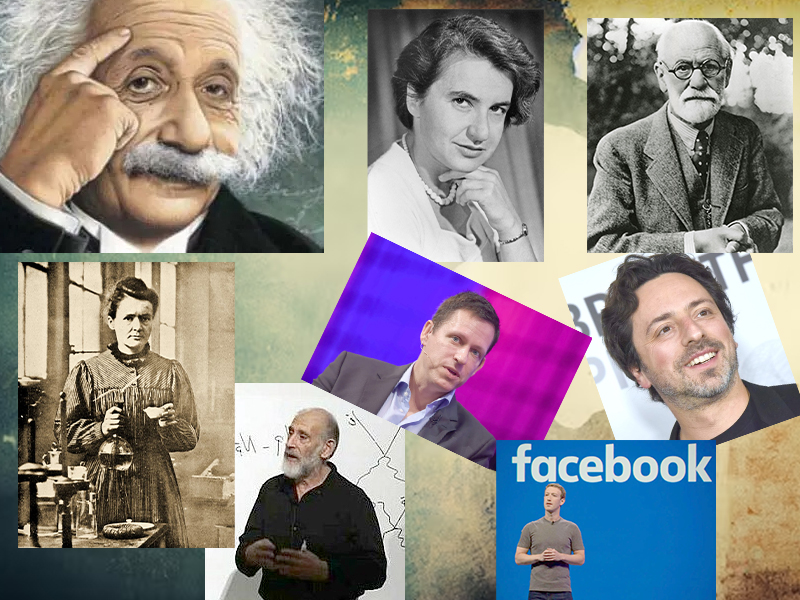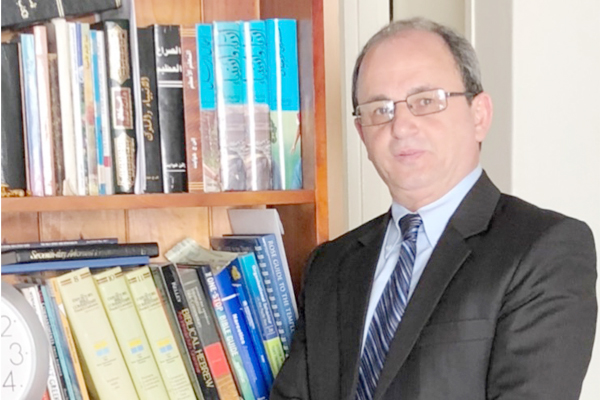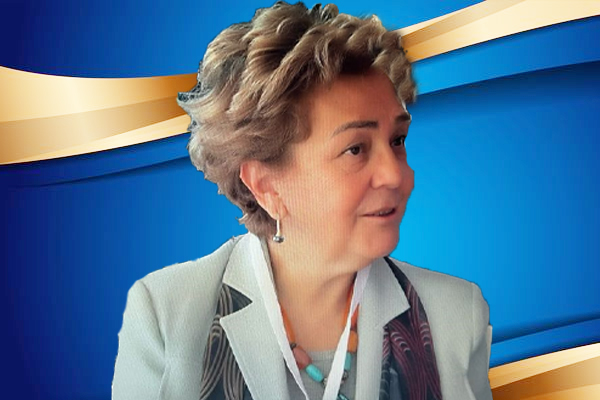
By/ Sam Nan
Anti-Semitism is a term that refers to feelings of hatred or discrimination against Jewish people. The origins of anti-Semitism trace back to ancient times and have manifested in various forms throughout history.
Cultural and religious misconceptions played a significant role in its development. For instance, during the Middle Ages, Jews were falsely accused of being responsible for the death of Christ, which fueled increased hostility toward them. It is crucial to acknowledge that not all Jews supported the demand for Christ’s crucifixion; rather, it was a specific group of high priests who perceived Christ’s kingship over the Jews in literal terms, leading them to fear for their own positions and subsequently to lodge complaints against him. In contrast, the majority of Jews were mournful and implored for his release.
Social and economic discrimination against Jews historically restricted their ability to pursue certain professions. This forced many into fields such as finance and trade, positioning them as targets for the ire of other communities.
Allow me to enlighten you, dear reader, about the Jewish people and the numerous contributions they have made to the world, as well as to development, civilization, and progress. Jews have been instrumental in driving global advancement and will continue to be so.
The majority of the scientists who have significantly shaped our world are Jewish. In this article, I will highlight eight Jewish individuals whose contributions have elevated and positively impacted society. While a thorough examination of each scientist›s work would require extensive volumes, I will provide a concise overview of their achievements and reflect on how the world might have differed without their remarkable inventions and discoveries, which deserve our admiration.
Albert Einstein and the Theory of Relativity:
Albert Einstein, a Jewish scientist, is regarded as one of the greatest minds in history. He formulated his groundbreaking theory of relativity, which fundamentally transformed our understanding of time and space.
Einstein’s theory introduced the revolutionary concept that time and space are not distinct entities; rather, they are intertwined in a single continuum known as spacetime. This paradigm shift has led to a profound comprehension of how objects in the universe interact with one another.
His insights paved the way for several remarkable advancements, including:
Global Positioning System (GPS):
This technology enables precise location tracking anywhere on the planet.
Special Relativity:
This principle established the renowned relationship between mass and energy, which has been crucial in elucidating nuclear processes, including both nuclear and solar energy.
General Relativity:
This theory has helped explain various astronomical phenomena, such as the bending of light around massive celestial bodies (like the sun), the existence of black holes, and the recently discovered gravitational waves.
Had this remarkable individual not existed, the world would have remained in the shadows of ignorance, unable to harness the knowledge and innovations that have illuminated our understanding of the universe. Instead of engaging with meaningful inquiry, humanity might have remained preoccupied with outdated legacies, neglecting the potential of critical thinking and scientific exploration.
Marie Curie and Her Research in Physics:
Marie Curie, the French-Polish physicist and chemist, is of Jewish descent. She made groundbreaking contributions that significantly impacted the fields of physics, chemistry, and medicine. Curie is renowned for her pioneering research in radioactivity and was the first woman to win a Nobel Prize, achieving this remarkable feat twice: first in physics and then in chemistry, for her efforts to isolate the element radium.
Marie Curie›s Achievements:
Radiotherapy: Curie established a robust foundation for cancer treatment through the use of radiation. She demonstrated that radiation derived from radium could effectively destroy cancer cells, leading to the development of radiotherapy, which remains a prominent cancer treatment to this day.
Field Contributions in World War I: During World War I, Marie Curie created mobile radiology units, colloquially known as «Little Curies,» to diagnose injured soldiers using X-ray technology. These units significantly contributed to saving many lives by allowing for precise identification of injury sites, thereby improving survival rates.
Benefits and Achievements of Marie Curie’s Research:
Advancements in Cancer Treatment: Her research laid the groundwork for radiotherapy, revolutionizing the medical field. Today, radiotherapy is based on principles established by her work and is one of the primary methods for treating cancerous tumors.
Development of Nuclear Physics: Curie›s research helped establish the foundations of nuclear physics, enhancing our understanding of nuclear reactions, which later facilitated the peaceful and scientific use of nuclear energy.
Contributions to Medical Science and Research: Marie Curie became a symbol of innovation in medical research, and her contributions led to the advancement of medical devices that utilize radiation, such as X-ray machines used for diagnostic purposes.
Without Marie Curie›s contributions, the advancements in radiation therapy for cancer, the utilization of ultraviolet light for disease detection, and the progress in medical science might not have occurred. Her legacy stands as a testament to the impact of her work on human health and scientific progress.
Who should we truly express our appreciation and respect for? Is it to Judaism, which has contributed immensely to the development of treatments for cancer and the diagnosis of previously incurable diseases, or should it be directed towards those who propagate hate speech against Jews, branding them as adversaries of the faithful?
In my observations, I have not encountered significant contributions to society from those “believers” of various religions. In contrast, I have discovered that the vast majority of knowledge and scientific advancements have emerged from the Jewish community, often unjustly labeled as “the most hostile to those who believe.” This stark contrast highlights the importance of recognizing and valuing the positive impact that individuals from all backgrounds, including Jews, have made in advancing human understanding and well-being.
Rosalind Franklin, Physicist:
Rosalind Franklin was a British scientist of Jewish descent, renowned for her expertise in biochemistry and physics. Her groundbreaking research significantly advanced our understanding of the molecular world, particularly in the following areas:
DNA Research:
Franklin conducted pivotal research on DNA at King’s College London, employing advanced X-ray crystallography techniques to capture images of DNA molecules and analyze their atomic structure. The famous photograph she produced, which clearly displayed DNA›s double helix structure, provided crucial evidence that enabled scientists James Watson and Francis Crick to deduce the correct configuration of DNA.
Polio Vaccine Development:
Franklin shifted her focus to virology, where she made significant contributions to understanding the structure of the poliovirus. Her insights opened new avenues in the field, facilitating advances in vaccine development.
Studies on Carbon and Batteries:
Franklin also conducted in-depth studies on coal and graphite. Her research enhanced the applications of these materials, contributing to the development of carbon-based batteries and energy solutions.
Genetic Disease Research:
Her contributions to molecular biology had a profound impact on both biological and medical sciences, as she played a key role in advancing genetic research and understanding hereditary diseases. Her legacy remains foundational to modern genomics.
Without Rosalind Franklin›s profound knowledge of DNA, society might have erroneously believed that a child could be born four years after conception and incorrectly attributed to a non-existent father. Her work underscores the critical importance of scientific inquiry and its implications for understanding life itself.
Sigmund Freud:
Sigmund Freud, the founder of psychoanalysis, was a Jewish thinker whose insights profoundly shaped psychology and psychiatry. His Jewish identity played a significant role in informing his perspectives on society and his understanding of cultural and psychological experiences, particularly in the context of the anti-Semitism that permeated Europe during his lifetime.
One of Freud›s pivotal contributions was his exploration of dream interpretation. He posited that dreams serve as symbolic expressions of repressed desires and fears, acting as a conduit to the subconscious mind. In his seminal work, The Interpretation of Dreams, Freud established a new field dedicated to the study of the mind.
Without Sigmund Freud, the landscape of psychoanalysis as we know it today would not exist. His theories provided the framework for analyzing personalities and understanding their complexities, offering essential tools for effectively engaging with others. Absent his contributions, society may have continued to view dream interpretation as mere divine messages, adhering to fabricated myths that offered no progress. Freud›s legacy stands as a testament to the profound impact of his Jewish heritage on his groundbreaking work.
Leonard Susskind:
Leonard Susskind is a prominent theoretical physicist of Jewish descent, renowned for his significant contributions to our understanding of black holes and string theory. His groundbreaking research has expanded our comprehension of the universe and the nature of space.
Through Susskind’s work, humanity has ventured into the complexities of space, moving beyond superstitions and magical thinking. His contributions have directed the world›s attention toward practical scientific exploration, showcasing the vital role of Jewish scholars in advancing our understanding of the cosmos.
Sergey Brin:
Sergey Brin, a co-founder of Google and of Jewish heritage, revolutionized how the world searches for and accesses information online. Together with Larry Page, he established Google, which has grown into one of the most influential technology companies globally.
Despite the unfortunate reality that anti-Semites utilize Google to propagate hate speech against Jews, it is essential to recognize the profound contributions of Jewish innovators who have propelled the world toward greater understanding and advancement. Their work has fostered a climate of mental maturity and enlightenment that benefits society as a whole.
Mark Zuckerberg:
Mark Zuckerberg, the Jewish founder of Facebook, has played a pivotal role in creating one of the largest and most recognizable social media platforms in the world. Alongside him, Dustin Moskovitz, also of Jewish descent, was a key figure in the development of the site, contributing to its architecture and functionality. Peter Thiel, another influential Jewish figure, was an early investor in Facebook.
Regrettably, social media platforms that originated from Jewish innovation are often misused to disseminate falsehoods and hate speech against Jews. Such a reality raises questions about fairness and accountability in the digital age.
In conclusion, Australia Today stands firm in its commitment to defending the rights of Jews, whose scientific, innovative, and cultural contributions have profoundly benefited humanity. Combating anti-Semitism is vital for fostering peaceful coexistence among communities, and recognizing the achievements of Jewish individuals is essential in this ongoing effort.









